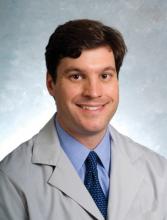The Internet revolution has had a seismic impact on how people interact, connect, and conduct research. The Internet and the Web are responsible for generating an information age in which anyone is a simple online search away from being a self-reported expert on a topic. Who among us has not had a patient present an article on a particular symptom, medical study, or purported cure for a disease?
Technology has shifted the balance. Where once medical institutions were the "ivory towers" of information, now patients have nearly equal access to medical information. This has shifted the doctor-patient relationship toward a more equal partnership. An engaged patient who is motivated to seek out information can be a great asset to a physician, particularly in the field of genomics where new discoveries and associations occur at a tremendous pace.
The power of connecting via social media cannot be overestimated. Facebook, LinkedIn, and Twitter are industry giants leading the charge. It took Facebook approximately 6 months to add 100 million individuals and the number of regular users has far surpassed this number. Approximately 42% of U.S. adults use social networking sites, and it accounts for 1 of every 6 minutes spent online.
This time spent online is not just for perpetuating the latest celebrity gossip. The Centers for Disease Control and Prevention used Twitter to update physicians during the 2009 H1N1 outbreak via an emergency information feed that had 1.2 million followers. Patients, physicians, researchers, and industry now intersect in social media spaces and push the very definition of clinical research – particularly in genomics – where often hundreds, if not thousands, of patients may be required to measure an effect.
The direct-to-consumer (DTC) genomic testing company 23andMe is an early adopter of combining the power of social media and research. While the clinical utility of DTC genome scans has not been established and the ability to obtain this information without involving the medical system remains controversial, 23andMe has demonstrated the potential power of combining social media and genomic research into their web-based genetic association study for several common traits (PLoS Genet. 2011;6:e1000993 [doi:10.1371/journal.pgen.1000993]).
Is finding the single-nucleotide polymorphism (SNP) associated with the photic sneeze reflex that makes people sneeze when going from darkness to light groundbreaking research? Not necessarily. But the method of discovery that 23andMe uses is intriguing. Concerns have been raised regarding issues of privacy, informed consent, the need for an institutional review board (IRB) involvement, and the reliability of self-reporting. However, their approach has uniquely combined two rapidly evolving technologies. Building on this momentum, 23andMe has developed new social media communities with the intention of advancing genomic research in Parkinson’s disease and several cancers.
As 23andMe moves beyond common traits research, it will be interesting to witness whether their approach can lead to significant advances in our understanding and management of these conditions.
The website PatientsLikeMe.com is further evidence that social media can be harnessed to accelerate clinical research. Paul Wicks, Ph.D., and his associates recently demonstrated that, by building a data-collection tool for the amyotrophic lateral sclerosis (ALS) patients registered with their website, they can provide important information regarding the efficacy of an unproven or off-label use of a medication, in this case lithium, and accelerate clinical discovery. (Nature Biotechnology 2011;29:411-4)
This crossroads is influencing traditional research as well. Researchmatch.org is a Clinical and Translational Science Awards (CTSA) initiative, funded through the National Center for Research Resources, that is a connecting people looking to participate in studies with researchers looking for participants. The website is capitalizing on the social media momentum to link potential study participants and researchers via an online registered community.
As with any disruptive technology that challenges the norm, there will be detractors who minimize or dismiss the potential, citing the limitations of social media–based studies. It is true; it will be difficult, if not impossible, to meet the rigors of a carefully designed, randomized, placebo-controlled study through social media–based research. The goal is not to replace current clinical trial approaches that remain the gold standard but rather to harness the power of social media as a potential adjunct to our current model of clinical research and thus advance medicine.
As a medical community, we should support efforts that lead to advancements in medicine, provided appropriate protections are in place for study participants. After all, who is better motivated to advance knowledge of a condition more than a patient or family member with a particular condition? Perhaps social media can help harness this motivation and bring us one step further in understanding a disease and its underlying genomic influences.
Dr. Hulick is a medical geneticist at NorthShore University HealthSystem, Evanston, Ill., and a clinical assistant professor at the University of Chicago. He reported having no conflicts of interest.

